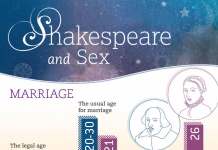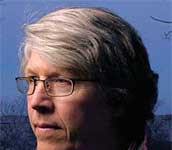
I received an alumni newsletter today from my alma mater detailing an overhaul they recently made to the curriculum for English majors. In my day (1996-2000) the program was set up in such a way as to expose students to major works from as many time periods as possible. Following the standard first-year survey course, there were a dozen other categories and you had to choose amongst the offerings so that you got a certain number from various groupings. For instance, one grouping contained courses in Old English, Shakespeare and the Restoration and you had to take two of the three. The only two compulsories were English 110 (the survey course) and a third-year seminar in literary theory. It was assumed that you could write an academic essay. Beyond a handout on plagiarism and proper use of MLA citation, which was included in every course syllabus, no guidelines were offered. If you struggled, the student centre had tutors who could help you.
The new program has some significant changes. The year 1 offering is now a more remedial-sounding writing and critical theory workshop which seems to cover the plagiarism/academic writing stuff, a bit of what we did in 3rd year literary theory, and an overview of the major literary forms, with examples of each. Then the venerable survey course based upon the Norton Anthology comes in year 2. And in the upper years, students get to explore the more in-depth and specialized seminar courses based around a variety of topics and time periods. With literary theory thus covered back in the glory days of year 1, the mandatory upper-level seminar is now a new course where the class will study one major text, in great detail, for an entire term.
I have mixed feelings about these changes. I went to university back in the days before on-line plagiarism checkers and Wikipedia and cell phones that can store the entire Harvard Classics and still have space left over. It’s hard to believe that 1996 is now considered a ‘simpler’ time, but it seems it is, and I suppose they have to cover plagiarism and research skills in more detail than they had to back when I was there. On the other hand, the third-year seminar sounds interesting. I’d love to know what books they have short-listed on their ‘valuable enough to spend a whole semester studying them’ list!
One thing I do know, my English degree would be a lot cheaper now—more than half of the texts I studied are readily available on-line for free. I’d need the library reserve copy for page references to submit with my course work, but I could do the core reading easily on my iPad if I wasn’t in writing mode. The single most expensive book of my degree was the Norton Shakespeare, which was $85!
Related



































Thanks for the memory. Also an English major (graduated in 1989). I used the Pelican Shakespeare instead of Norton. And I still have it. Don’t remember what I paid for it, but it was a bundle.
And let’s not forget how heavy those durn books were. I could have beat someone to death with my book bag filled with two Norton anthologies and the complete works of Shakespeare.
In those days before backpacks came into use, I had trouble walking in a straight line without my book bag because I was so used to compensating for all that weight. (A BA in English, 1975, MA 1977)
Ah, the carrying-books shuffle, textbooks and/or literature gathered hopefully against your chest (“For God’s sake don’t bump me on that side, or that 2kg book might break your kneecap”), slightly bent over to increase your chances of getting there with the full load, taking many tiny but hurried steps to avoid jogging the load but actually get there before everyone goes home.
I’m surprised I haven’t seen chiropractic ads supporting ebooks. 😉
Ah, the “good old days!” My professor preferred the Riverside Shakespeare.